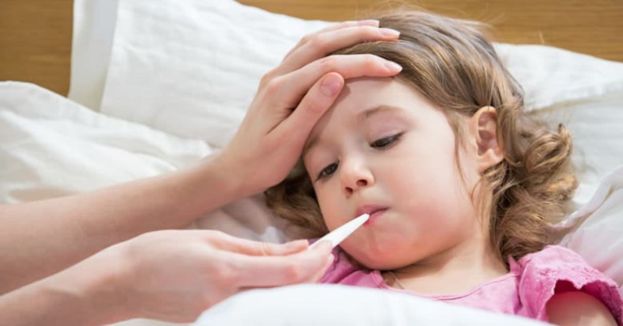Dr. Robert Frenck, a pediatrician specializing in infectious diseases at Cincinnati Children’s Hospital and director of the institution's Vaccine Research Center, highlighted the seasonal nature of respiratory viruses that can lead to pneumonia, an infection of the lungs.
"Every year, we see the emergence of respiratory viruses that can cause pneumonia. This is the time of year when we get a lot of respiratory infections," Frenck explained to Fox News Digital. "They tend to peak during the fall and winter months. What we typically see this time of year is a mix of respiratory syncytial virus (RSV), influenza, and COVID."
WATCH: NICOLE WALLACE AND THE END OF DEMOCRACY![]()
December 02, 2023
Pneumonia can also be caused by other bacteria and viruses, including mycoplasma pneumonia, streptococcus pneumoniae, Group B streptococcus, staphylococcus aureus, and adenovirus. The disease is more prevalent among children under the age of 5. According to Cedars-Sinai, children with weakened immune systems, existing respiratory conditions, or chronic health issues such as asthma or cystic fibrosis are at a higher risk of contracting pneumonia. The risk is also elevated for children living in households where parents or caregivers smoke.
EIGHT U.S. NEWSPAPER PUBLISHERS TAKE ON AI GIANTS IN BRAZEN LAWSUIT![]()
Frenck emphasized the role of vaccines in preventing the spread of these viruses. "We have a flu vaccine that is recommended for every child 6 months of age or older. People 2 years or older can get a nasal flu vaccine," he said. Pregnant women can also receive RSV vaccines, which allow them to pass on the antibodies to their children. "And we have monoclonal antibodies, although they're kind of in short supply, for babies in the first eight months of life," he added. Prevnar, a vaccine routinely recommended for infants and children, also offers protection against pneumococcus bacteria.
YIKES! IS MARJORIE TAYLOR GREENE LOSING HER 'GRIP' IN POWER STRUGGLE?![]()
Frenck also underscored the importance of good hand hygiene and frequent hand-washing in reducing the spread of infections. Dr. Sarah Park, medical director of medical affairs at Karius, a California-based biotech company specializing in infectious disease testing, suggested considering mask-wearing in crowded or enclosed spaces, particularly in areas reporting increased respiratory illness. "If children do become ill, keep them at home to prevent spread to others," Park, a former epidemic intelligence service officer with the Centers for Disease Control and Prevention (CDC), advised.
WATCH: FETTERMAN CONFRONTED BY A PRO-HAMAS ACTIVIST![]()
The primary symptoms of pneumococcal pneumonia, as per the CDC, include fever and chills, cough, rapid breathing or difficulty breathing, and chest pain. Some children may also experience vomiting or diarrhea, fatigue, and loss of appetite. "If our lungs aren't working well, we have to breathe faster to get the oxygen we need, so one of the early signs of pneumonia you see is the child breathing faster," Frenck explained. He also noted that children "may not be as active," and in younger children, parents may notice their nostrils flaring out a bit. "If they're really having severe distress, you can see their ribs pulling in," he warned. "But most of the time, it's a cough and increased respiratory rate."
TESLA IN TURMOIL: MUSK OUSTS TOP EXECS AND PREPARES FOR MASSIVE LAYOFFS, WHAT'S HAPPENING?![]()
Park urged caution with children exhibiting symptoms of respiratory illness and advised seeking medical advice if symptoms are severe, progress, or persist. Cedars-Sinai recommends contacting a healthcare provider if symptoms continue to worsen, or if the child experiences breathing difficulties, swollen joints, neck stiffness, trouble staying hydrated, or a fever that lasts for more than a few days.








 Discover alternative ideas that will make you think
Discover alternative ideas that will make you think Engage in mind bending debate
Engage in mind bending debate Earn points, rise in rank, have fun
Earn points, rise in rank, have fun


